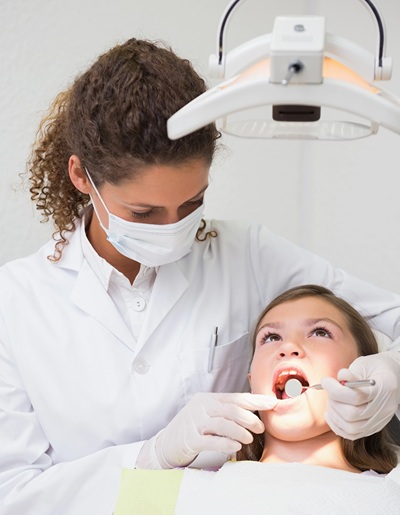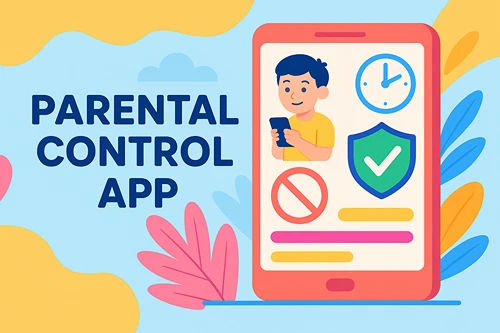Connection between Oral Health and Speech Development
Teeth alignment, jaw structure, and overall oral health directly affect how children produce sounds and, consequently, their speech clarity. Misalignments such as malocclusions (improper bites) can alter the way children form words.
Similarly, missing teeth, especially the anterior teeth, can significantly impact a child’s ability to pronounce certain sounds like “th,” “s,” and “z.”
Importance of Dental Health in Speech Clarity
Conditions like tongue tie, where the tongue is tethered too tightly to the bottom of the mouth, can also restrict the range of tongue movements necessary for speech. Pediatric dentists are skilled in diagnosing these issues early and can recommend interventions such as orthodontics or minor surgical procedures to correct these anomalies, thus aiding in clearer speech.
Oral Milestones Related to Speech
The development of oral structures is closely tied to speech capabilities. For instance, the eruption of teeth, the strengthening of jaw muscles, and the ability to control saliva all contribute to a child’s speech development. Pediatric dentists monitor these milestones during regular check-ups. Delays or abnormalities in these milestones, such as late teething or issues with jaw alignment, can signal potential speech development problems.
By keeping track of these oral milestones, children’s dentists ensure that any deviations are addressed promptly, providing referrals to speech therapists if necessary to ensure comprehensive care.
Role of Pediatric Dentists in Speech Development
Here’s how pediatric dentists contribute to speech development through early detection and intervention strategies.
Early Detection of Problems
Methods Used by Pediatric Dentists to Detect Issues That Could Affect Speech
Pediatric dentists employ a variety of methods to detect early issues that might impede speech development. Visual examinations are standard, but they also use advanced diagnostic tools such as digital X-rays and 3D imaging to assess jaw alignment, teeth spacing, and other oral structures. Observational assessments during consultations allow dentists to notice how a child speaks and reacts, which can provide clues about potential speech-related issues.
Regular Dental Check-ups and Their Importance in Monitoring Development
Regular dental check-ups are vital for monitoring a child’s oral development closely. These check-ups provide continuous insights into the growth patterns of the child’s teeth and jaw, ensuring that any deviations from typical development are caught early. Maintaining a routine dental schedule allows pediatric dentists to build a comprehensive profile of the child’s oral health over time, which is essential for timely interventions.
Intervention Strategies
Types of Dental Treatments That Can Improve Speech Outcomes
There are various dental treatments available that can significantly improve speech outcomes. Braces and other orthodontic treatments correct misalignments that may affect speech clarity. Space maintainers are used to manage the space in a child’s mouth after early tooth loss, ensuring that permanent teeth erupt correctly and do not impact speech development. For cases like tongue tie, where the lingual frenulum restricts tongue movement, a simple surgical procedure called a frenectomy can be performed, which often results in immediate improvements in speech articulation.
Common Speech Issues Linked to Dental Health
Pediatric dentists are keenly aware of the impact that oral health can have on speech development. Certain dental conditions can lead to speech issues such as lisps and misarticulations, while delayed dental development can correlate with speech delays.
Lisps and Misarticulations
How Certain Dental Conditions Can Lead to Specific Speech Issues Like Lisps
Lisps and misarticulations often arise when there are structural anomalies within the oral cavity, such as misaligned teeth, an overbite, or an underbite. These conditions can alter the way the tongue moves and interacts with the teeth during speech, affecting the production of certain sounds like “s” and “z”. For example, an anterior open bite (where the front teeth do not touch when the jaws are closed) can cause a child to develop a frontal lisp because the tongue protrudes through the teeth when attempting to make these sounds.
Treatment Options That Can Help Correct These Speech Issues
Pediatric dentists often collaborate with orthodontists to provide treatments that can correct dental malformations affecting speech. Braces, retainers, and in some cases, surgical interventions, are employed to realign the teeth and jaw structure, thereby improving speech clarity. Speech therapists might also work alongside these treatments to help children learn correct tongue placement and speech habits, enhancing the effectiveness of the dental treatments.
Speech Delays
The Relationship between Delayed Dental Development and Delayed Speech
Delayed dental development, such as late teething or abnormal jaw growth, can have a direct impact on a child’s ability to form words and speak clearly. If teeth do not erupt as expected, or if a child’s jaw is not aligned properly, it can be difficult for them to make the range of sounds required for normal speech. This physical impediment can delay speech development, sometimes significantly.
How Improving Oral Health Can Aid in Catching Up on Speech Development
Improving a child’s oral health through regular dental check-ups and early interventions can play a crucial role in catching up on delayed speech development. Pediatric dentists focus on ensuring that the oral cavity develops properly, which in turn supports the correct development of speech abilities. Treatments might include space maintainers to manage the proper spacing in the mouth for incoming teeth, or preventive care strategies that ensure oral health issues do not exacerbate speech delays.





